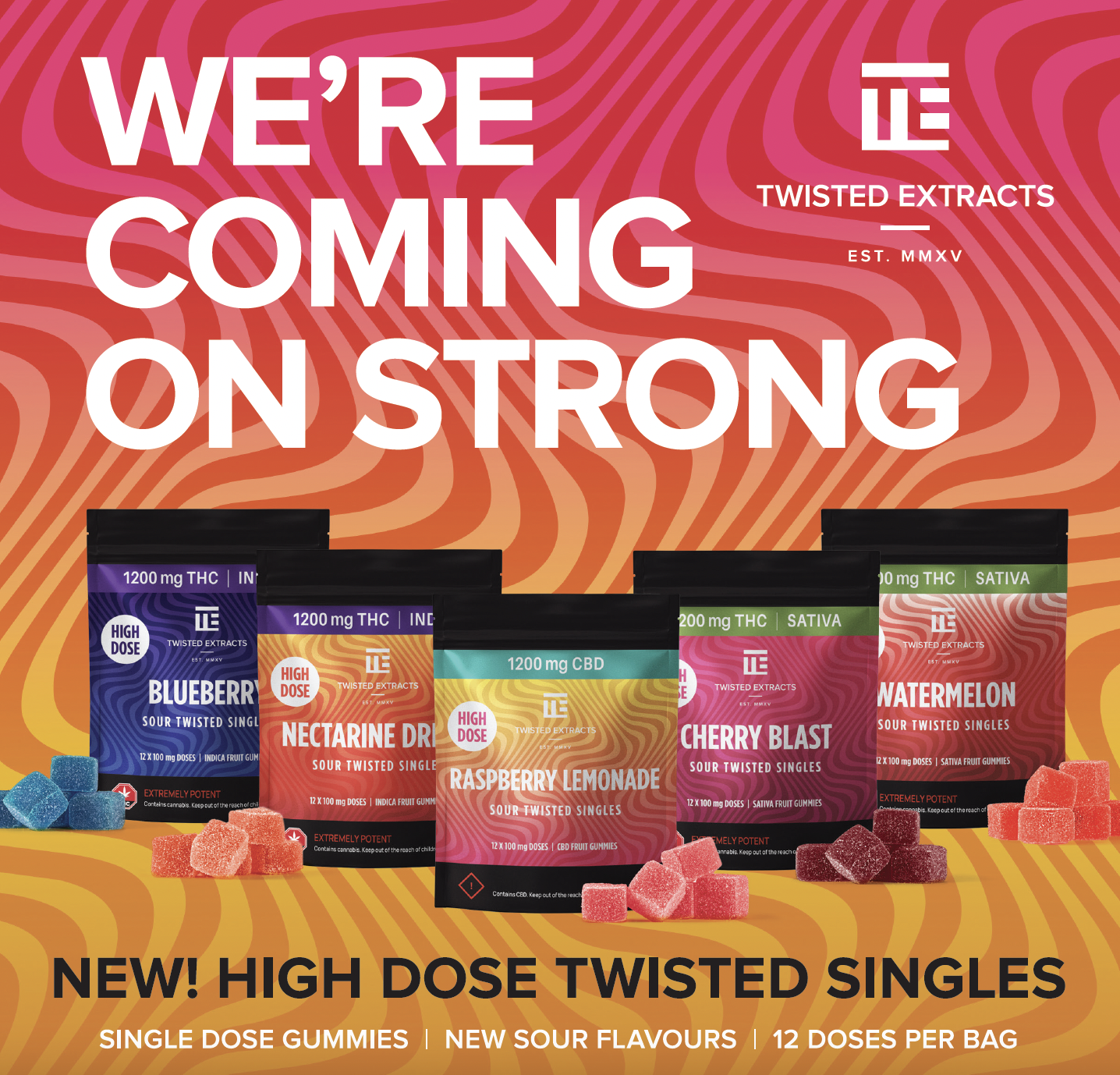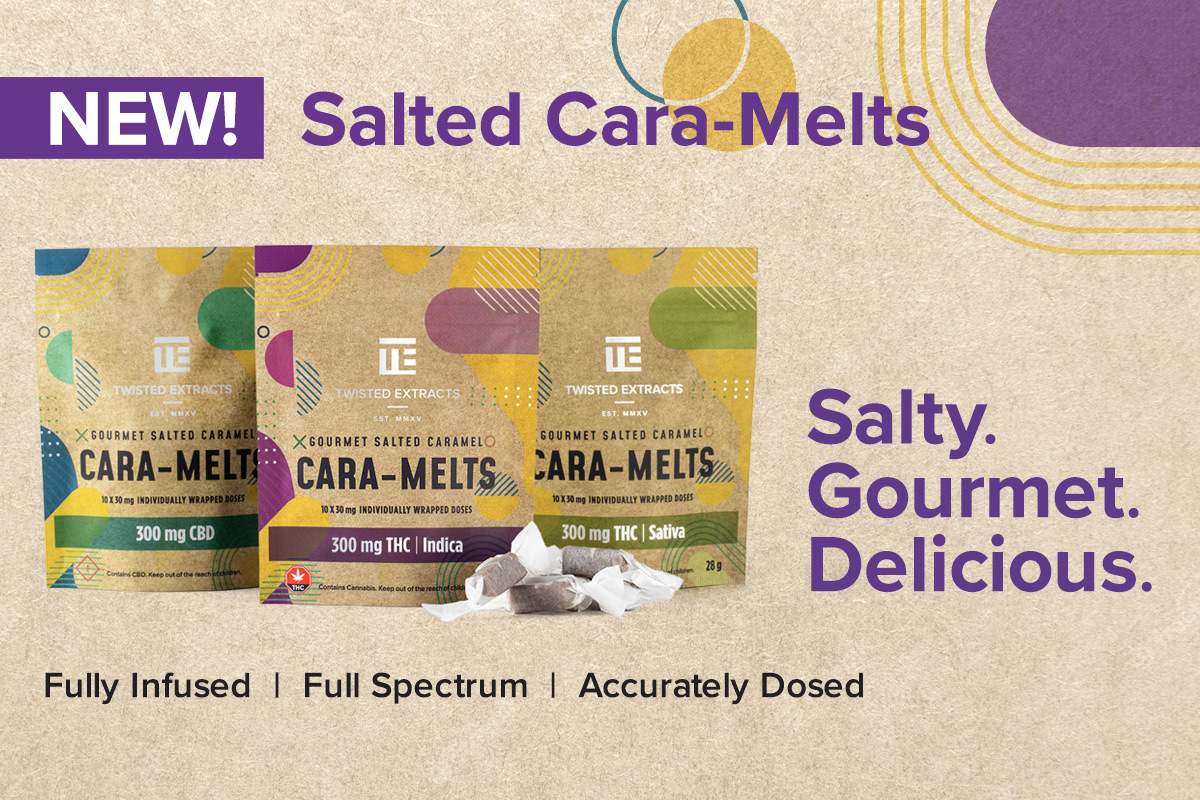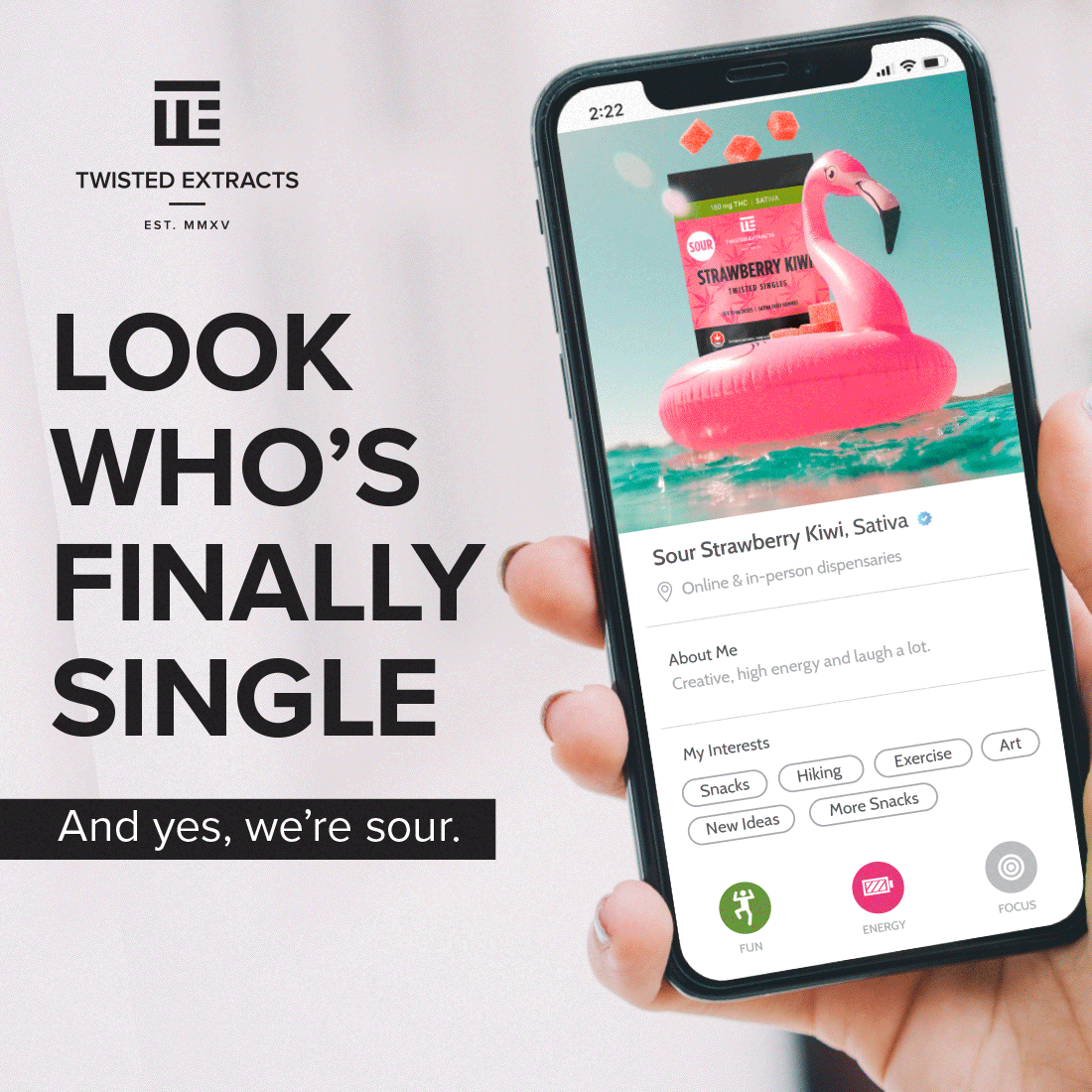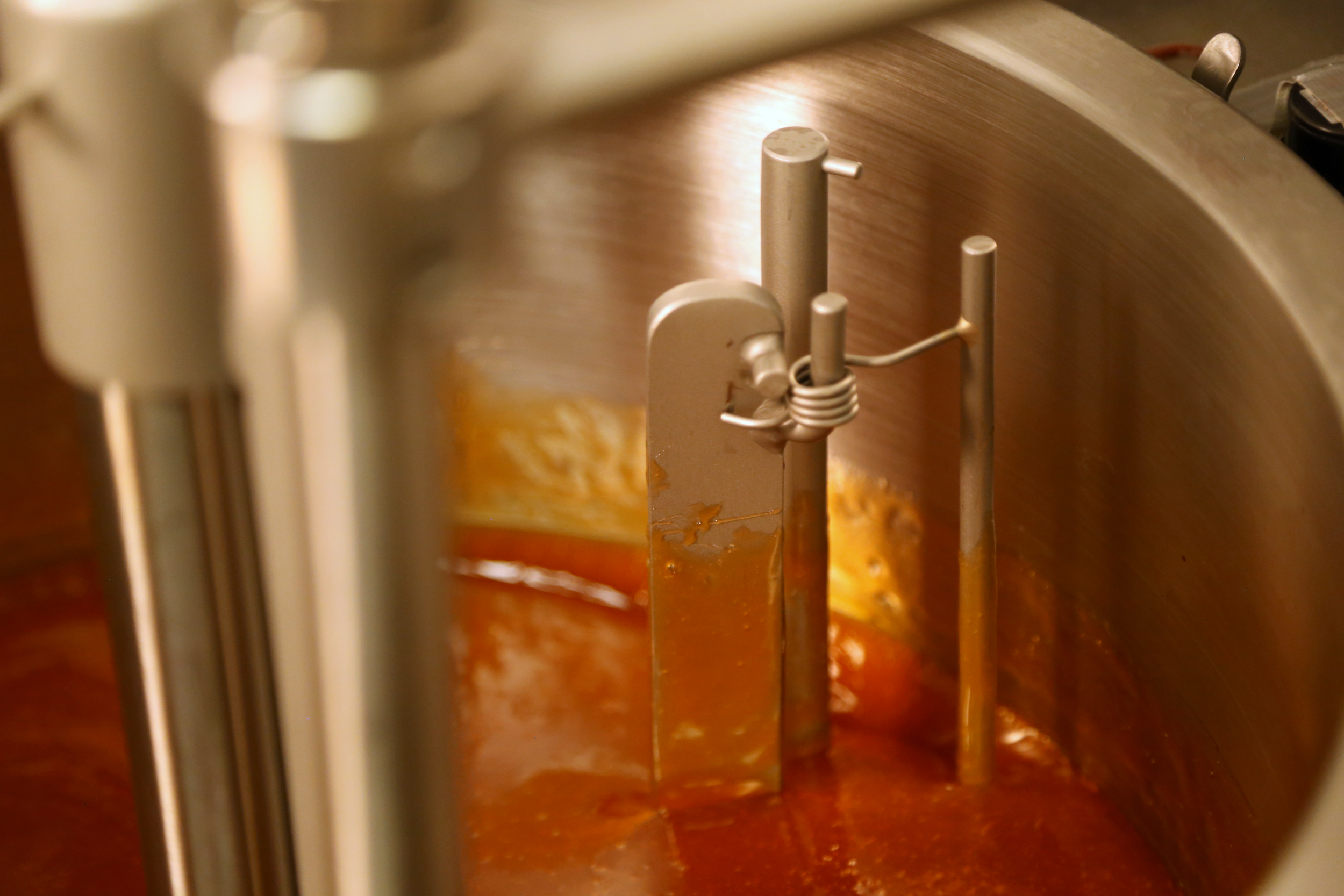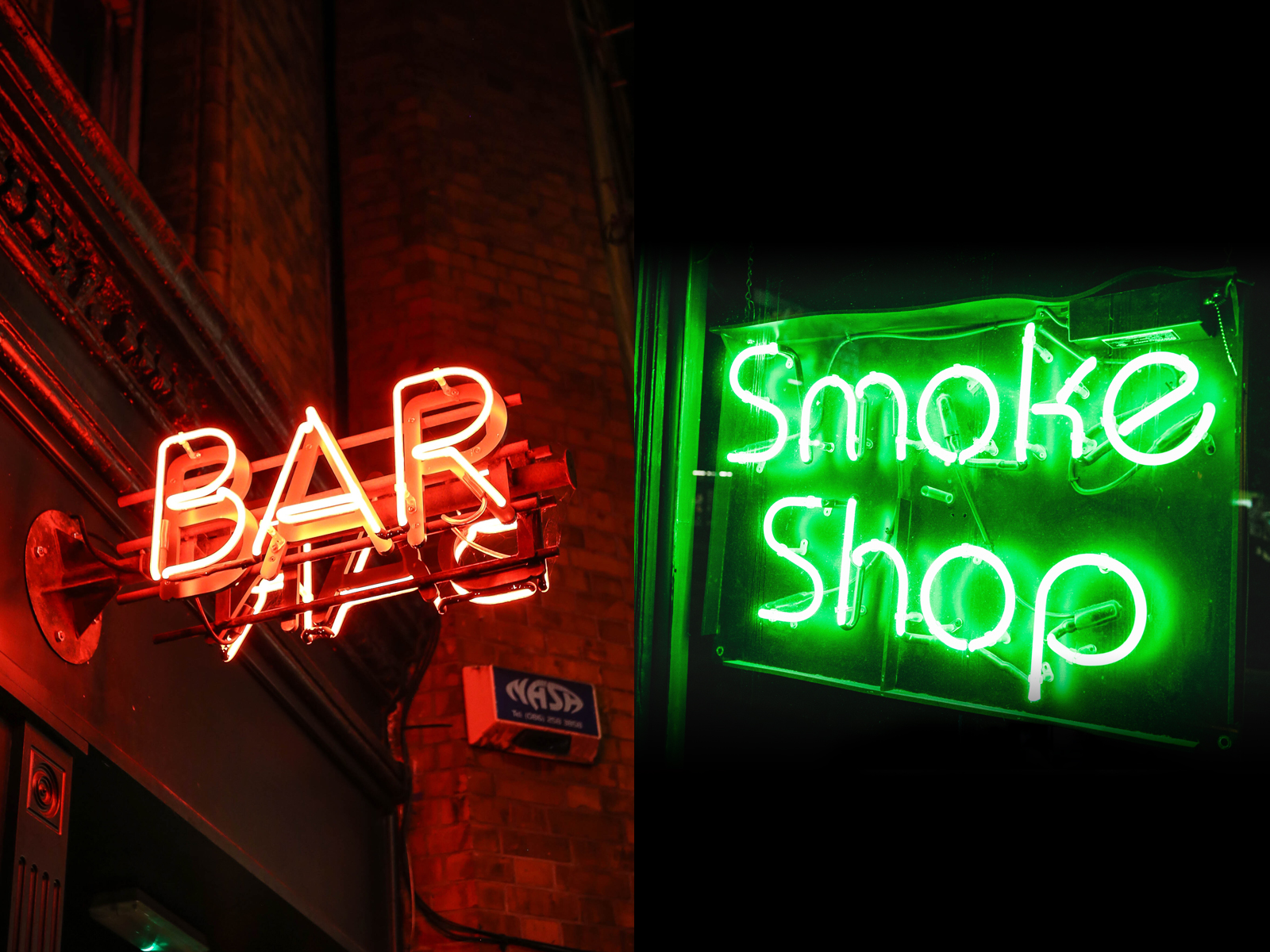
Cannabis vs. alcohol is a fierce debate topic – in terms of arguing which is better and which is better for you. People love to pit their favorite vices against others and claim theirs is “healthier”. But to really compare these substances means looking at a variety of social perceptions, statistics and facts.
Alcohol, alcohol everywhere…
Alcohol is, by far, the most common drug (yes, drug) used in Canada. It has a long history of use, is legal and easily accessible. Getting tipsy – and even drunk – is generally granted a social carte blanche, as its usage is widely aaccepted and culturally ingrained in our society. 
These days, alcohol goes hand-in-hand with dinner parties, leisure activities, celebrations, relieving stress – there are even Vinyasa and Vino yoga events! Apparently, if you want to make anything more fun – just add booze! Many of the milder (hangovers, drunk texting) and wilder (liver damage, blacking out) side effects of alcohol are justified culturally and even glorified in popular memes and refrains that uphold and normalize drinking.
But it’s not all clinking “cheers” and laughing about it the next day: alcohol can give rise to some ugly behaviour. Aggressive outbursts, self harm and the occurrence and severity of domestic violence are all connected to alcohol consumption. Reckless actions like drunk-driving and taking unnecessary risk-taking are other common patterns among those that use – and abuse – alcohol.

You don’t have to go too far down the internet rabbit-hole to find an extensive list of health hazards directly related to alcohol consumption. The Canadian Centre on Substance Use and Addiction has run a lengthy report on alcohol safety, and identified some of the consequences of excessive alcohol usage:
- Short term: Intoxication, memory loss and blackouts, injury, violence, accidents, spousal abuse, suicide, alcohol toxicity (overdose), death.
- Long term: Alcohol dependence, increased risk of several types of cancer (e.g., cancers of the mouth, throat, liver, breast and digestive track), learning and memory problems, mental health (e.g. depression, anxiety), social problems (e.g. lost productivity, unemployment, family problems), diabetes, cirrhosis, pancreatitis, low birth weight, fetal alcohol spectrum disorder (FASD).
The World Health Organization has data indicating that about 3.3 million net deaths, or 5.9% of all global deaths, were attributable to alcohol consumption in 2012. In our country alone in 2015–2016, approximately 56,600 Canadians were hospitalized with a condition entirely caused by alcohol. Of these people, 21% had 2 or more hospitalizations entirely caused by alcohol that year. Also in, 2016 more people were hospitalized due to alcohol-caused issues than for heart attacks.
These consequences even reach our tax dollars. According to data collected by Health Canada, alcohol-related health costs come in at $165 per user, in sharp contrast to cannabis-related health costs, at $20 per user.
Cannabis – A Bad Reputation?
Cannabis, unlike alcohol, is lumped in the drug category with other substances that are very dangerous, generating the perception of its guilt by association. Where alcohol is readily available, heavily marketed and socially ubiquitous – cannabis use is still viewed as illegal, risky and a gateway to the use of much more serious drugs (which has been scientifically disputed).
On some levels intoxication is intoxication, and cannabis use certainly factors into some impaired driving statistics, but it has been found to differ greatly from alcohol in its associations with aggression, and domestic violence. As for its societal impacts, more resources tend to go into prosecuting the illegal distribution and possession of cannabis because of its status, rather than crime associated with its direct use.

With the health effects, the research isn’t as conclusive. Cannabis isn’t always consumed the same way and there less established data than there is for to alcohol, documenting its negative short and long-term effects, which can vary from person to person. That’s not to say that cannabis use isn’t completely free of risks, and – as with alcohol – those with pre-existing health conditions should proceed with caution and seek expert advice.
In some ways, the great alcohol/cannabis debate is like comparing apples to oranges: alcohol has extensive research, where cannabis studies are more limited. Also, the forms and effects are different, and major social biases exist.
That said, experts have weighed in on the available research. The Canadian Centre on Substance Use and Addiction (CCSA) have indicated that existing evidence suggests that alcohol causes more harm than cannabis, and some doctors have come forward. Even prominent public figures such as Barack Obama (and Kermit) have opined that cannabis is less dangerous than alcohol to the individual consumer. One thing is clear – there are thousands of overdose deaths per year from drinking alcohol, and none based on sole consumption of cannabis.
“herb is the healing of a nation, alcohol is the destruction”
– Bob Marley
Something that majorly sways this debate is the fact that cannabis is becoming increasingly researched – not just to examine risks, but for its benefits! Many emerging studies illustrate clinical evidence supporting the use of marijuana for specific medical purposes. The potential for cannabis application in the medical world is promising, indicating beneficial treatments for pain relief, nausea, anxiety, inflammatory bowel disease, seizures in epileptics, and the list goes on.
So, in the great debate – we’re in camp-cannabis – and firmly believe in its positive recreational and therapeutic effects – BUT we also think that this comes with responsible usage.
With cannabis, negative side effects increase when smokers don’t know how much marijuana they’re taking. We take the guesswork out of that, by keeping product and user safety at the forefront of our formulations. We’re committed to producing the highest quality cannabis-infused products, and you can enjoy our products, knowing your edibles are accurately dosed and safe, every time.
Our cannabis oil extract is tested to determine exactly how much THC and CBD is present. From here, we formulate our products to be exactly the desired dose along with another round of lab-testing on our final product to check for potency and consistency. Educating yourself helps you to enjoy cannabis safely, which you can do with our Edible Cannabis Safety Guide.
Further reading: 7 things you need to know before you try a cannabis-infused edible
Did you like this article?
Sign up for our newsletter to make sure you're in the know about all of our new product releases, contests and more.


